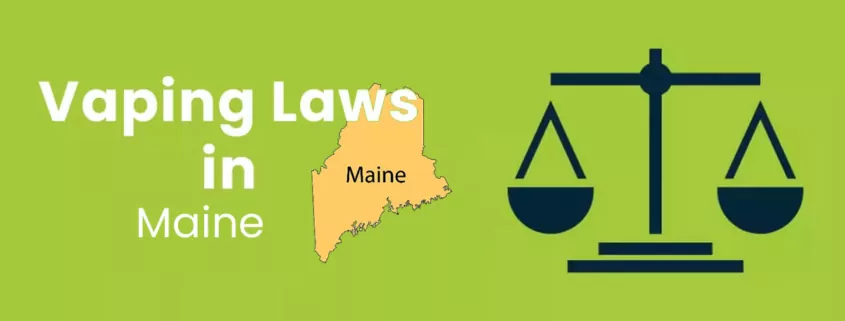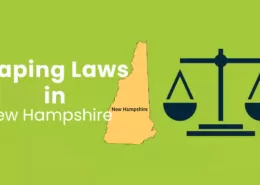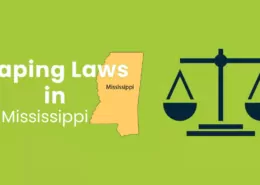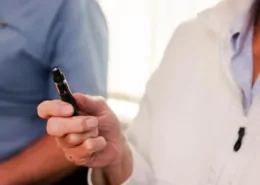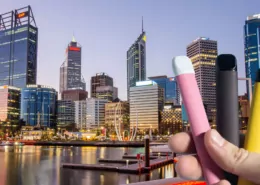Vaping Laws in Maine – Age, Flavors Ban, Tax & Public Use
Maine has developed a robust and evolving set of regulations for vaping products, including e-cigarettes, vape pens, and e-liquids. Driven by public health objectives, particularly the prevention of youth access to nicotine and the desire to maintain clean air standards, the Pine Tree State combines strict age restrictions, comprehensive public use prohibitions, specific taxation policies, and detailed retailer responsibilities.
As of 2025, understanding these multifaceted laws is crucial for consumers, retailers, and manufacturers. This guide provides an in-depth look at Maine’s current vaping laws, incorporating recent legislative updates and authoritative sources to help you navigate the regulatory landscape with clarity and ensure compliance.
The Legal Framework of Vaping Laws in Maine
At the heart of Maine’s approach to vaping is a clear legal definition that brings these products under tobacco control measures, alongside stringent age limits for purchase and possession.
Defining “Tobacco Product” to Include Vapes
Maine law is explicit in classifying electronic cigarettes and related items as “tobacco products.” According to Maine Revised Statutes Title 22, §1560-B, the definition of “tobacco product” includes “an electronic smoking device” and “any component, part or accessory of a tobacco product, including, but not limited to, filters, rolling papers, pipes and liquids used in electronic smoking devices, whether or not the liquid contains nicotine.” An “electronic smoking device” is further defined as “a device used to deliver nicotine or any other substance intended for human consumption that may be used by a person to simulate smoking through inhalation of vapor or aerosol from the device,” encompassing e-cigarettes, e-cigars, e-pipes, e-hookahs, or vape pens. This broad definition ensures that nearly all vaping devices and consumables fall under the state’s stringent tobacco control regulations.
Minimum Legal Sales Age: Strictly 21, With a Grandfather Clause
Maine prohibits the sale of tobacco and vaping products to anyone under the age of 21. This “Tobacco 21” law aligns Maine with federal standards aimed at curbing youth nicotine initiation. However, Maine’s law includes a specific grandfather clause: individuals who had already attained 18 years of age as of July 1, 2018, are still legally permitted to purchase these products. For practical purposes, retailers must assume 21 is the standard unless a customer can prove eligibility under the grandfather clause.
Retailers are legally mandated to verify the age of any purchaser who appears to be under 30 years old by checking a valid government-issued photographic identification. This “30 years old carding age” is a state requirement, and failure to check ID is not defensible even if the person subjectively appears to be over 30. It is also illegal for persons under 21 (unless grandfathered) to purchase, possess, or use tobacco or vapor products.
Furthermore, employees involved in selling e-cigarettes must be at least 17 years old. If an employee is between 17 and 21, they must sell these products under the direct supervision of a manager or another employee who is at least 21 years old.
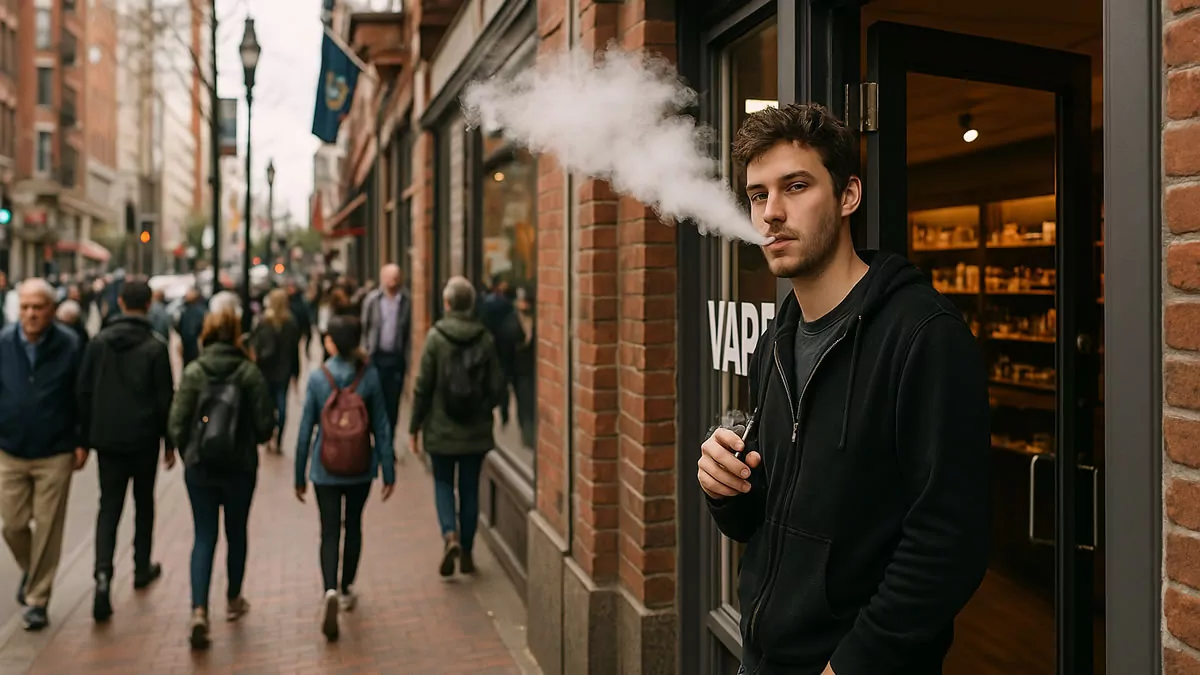
Where Vaping is Prohibited in Maine
Maine has taken significant steps to protect its residents from secondhand aerosol exposure by extending its Clean Indoor Air Act to include vaping products.
Maine’s Clean Indoor Air Act and Vaping
The Maine Clean Indoor Air Act has been amended to prohibit the use of electronic smoking devices in the same places where traditional smoking is banned. Effective October 15, 2015, this means vaping is prohibited in virtually all indoor public places and places of employment. These locations include, but are not limited to:
- Restaurants and bars
- Indoor workplaces
- Retail stores
- Public buildings
- Healthcare facilities
- Daycare facilities
- School buildings, grounds, buses, and at school-sponsored events.
Outdoor Area Restrictions, Including Parks and Beaches
Beyond indoor spaces, Maine law also restricts vaping in certain outdoor areas, particularly those frequented by families and children, or those managed by the state:
- Outdoor Eating Areas: Vaping is prohibited in outdoor eating areas of restaurants or bars if they are open for dining and beverage service.
- State Parks and Historic Sites: Vaping is banned in, on, or within 20 feet of beaches, playgrounds, snack bars, group picnic shelters, business facilities, enclosed areas, public places, or restrooms located in state parks or historic sites. At the Wells Reserve, for example, vaping is prohibited throughout except in a specifically designated smoking area in the parking lot.
- Playgrounds and Beaches (General): Even outside of state parks, many municipalities, like Portland, have banned public vaping in spaces such as general public parks, beaches, and playgrounds.
It is crucial for vapers to pay attention to local signage and be aware of specific city or county ordinances, as these can impose additional restrictions beyond statewide provisions.
Ecigator is one of the well-known vape brands spun off from FM Technology Co., Ltd, it’s an ISO-certified disposable vape manufacturer for OEMs, ODMs, and OBM since 2010. The founder team comes from top firms with more than 10 years of experience in the vaping industry and has devoted thousands of hours to providing users with a better and better experience.
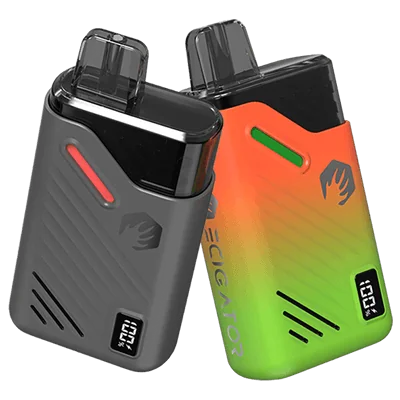
18K Disposable Pod Kit
Disposable Pod Kit – 18ml changeable pod with 650mAh rechargeable battery.
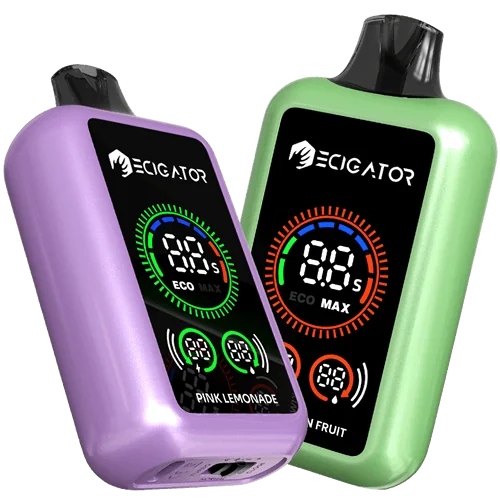
20K with Large Screen
20000 Puffs Disposable Vape with large screen. Normal and Boost working modes.
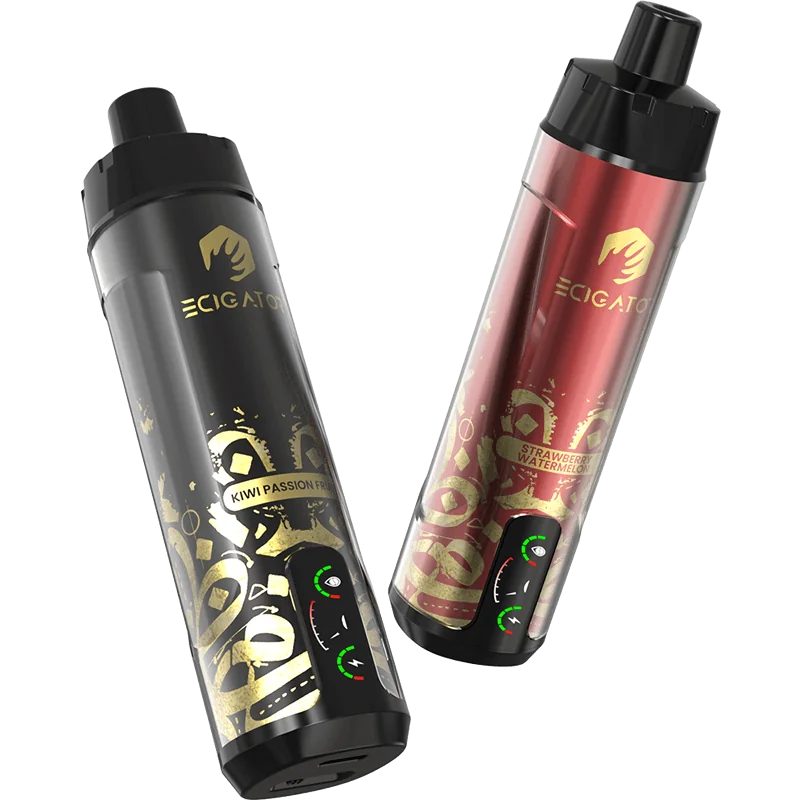
20K DTL Disposable
20K Puffs DTL(Directly to Lung) disposable vape with airflow control and screen.
Rules of Selling Vaping Products in Maine
The sale of vaping products in Maine is a regulated activity, with specific requirements for retailers to ensure compliance and prevent underage access.
Mandatory Retailer Licensing
All businesses intending to sell e-cigarettes or other vapor products in Maine must obtain a retail tobacco license. Vapor products are included under the definition of “tobacco products” for licensing purposes. The license fees vary based on the type of tobacco retailer and the time of year the application is submitted, with fees pro-rated quarterly:
- First-time applications (April 1 – June 30): $100-$150 (depending on license type)
- Applications (July 1 – Sept 30): $75-$113
- Applications (Oct 1 – Dec 31): $50-$75
- Applications (Jan 1 – March 31): $25-$38
Licenses are valid for one year, from April 1st to March 31st of the following year, and late renewals incur a $25 fee.
Sales Practices and Product Requirements
- No Self-Service Displays: Self-service displays of vaping products are prohibited except in tobacco specialty stores or in locations that are physically inaccessible to individuals under 21 (e.g., behind the counter).
- Vending Machines: Vending machine sales of vaping products are restricted to locations where individuals under 21 are not permitted access.
- Child-Resistant Packaging: Nicotine liquid containers sold or distributed in Maine must be in child-resistant packaging, as per Title 22, §1560-B. This excludes prefilled, sealed cartridges or pods not intended to be opened by the consumer.
- Online Sales and Shipping: Maine law prohibits tobacco products (which includes vapes) from being shipped to anyone other than a licensed retailer or distributor in the state. This effectively bans out-of-state online/phone sales directly to consumers in Maine.
Taxation of Vaping Products in Maine
Maine imposes a significant state excise tax on all “tobacco products,” which, as defined, includes electronic smoking devices and the liquids used in them, regardless of nicotine content.
As of January 1, 2024, the tax rate is 43% of the cost price (wholesale price) of these products. This taxation approach treats vaping products equivalently to other non-cigarette tobacco products. There has been consideration of legislation (e.g., LD 1658 for the 2025-2026 session) that could potentially increase cigarette excise tax rates, which might also affect the taxation of vaping products due to Maine’s equivalent increase provisions or specific amendments targeting vapes.

ECIGATOR
Ecigator is one of the well-known vape brands spun off from FM Technology Co., Ltd, it’s an ISO-certified disposable vape manufacturer for OEMs, ODMs, and OBM since 2010. The founder team comes from top firms with more than 10 years of experience in the vaping industry and has devoted thousands of hours to providing users with a better and better experience.
Flavor Restrictions in Maine
As of 2025, Maine does not have a statewide ban on the sale of flavored vaping products. However, this has been a highly debated issue. In 2024, a legislative effort (LD 1215) to implement a statewide ban on all flavored tobacco and vaping products gained considerable momentum but ultimately failed to pass before the legislative session ended, despite having the House Speaker as a co-sponsor.
While a statewide ban is not in effect, several municipalities in Maine have enacted their own local ordinances prohibiting the sale of flavored tobacco and vaping products. These include prominent cities like Portland, Brunswick, Bangor, and South Portland. This means the availability of flavored vape products can vary significantly depending on the specific city or town within Maine. Retailers and consumers must be aware of these local flavor bans in addition to state laws.
Can You Vape in the Car with Minors in Maine
Maine extends its tobacco control measures to private vehicles when minors are present. 29-A MRS §2120 prohibits smoking (which includes vaping due to the broad definition) in vehicles when a minor under the age of 16 is present. The penalty for violating this provision is $50.
Enforcement and Penalties
Violations of Maine’s vaping laws carry significant penalties for retailers:
- Selling Tobacco Products Without a License: This is a Class E crime, punishable by fines ranging from $300 to $500 plus court costs, and potentially up to 30 days imprisonment.
- Furnishing Tobacco/Vape Products to Minors (Under 21, unless grandfathered): This is a civil violation with escalating fines. For violations involving minors under 18, it can be a Class D crime with a minimum fine of $500. Repeat violations within a 6-year period can lead to increased fines of at least $1,000, and multiple repeat violations can incur fines of at least $1,500.
Enforcement is typically carried out by local law enforcement and state agencies responsible for tobacco control.
Conclusion
Maine’s vaping laws reflect a comprehensive and proactive approach to public health, balancing the availability of vaping products for adult smokers seeking harm reduction with stringent measures to prevent youth access and protect the public from secondhand aerosol. The 21+ age limit (with its grandfather clause), extensive public use prohibitions (both indoor and in specific outdoor areas like state parks and school grounds), significant taxation, retailer licensing, and child-resistant packaging requirements all contribute to a tightly regulated environment. While a statewide flavor ban has not yet materialized, the success of local bans and ongoing legislative interest suggest this will remain a key area of focus.
For consumers, it’s crucial to be aware of the age restrictions and where vaping is permitted, especially given local variations. For retailers, meticulous adherence to licensing, age verification, product standards, and sales practices is non-negotiable. As federal and state policies continue to evolve, and as more research emerges on the long-term impacts of vaping, Maine’s regulatory landscape will likely see further adjustments. Staying informed through official state resources like the Maine CDC (Department of Health and Human Services) and the Maine Legislature website is paramount for all stakeholders.
References
- Office of Governor Janet T. Mills – Governor Mills Orders Response to Increase in Youth Vaping (Dec 2019)
- Maine DHHS – Tobacco Rules & Regulations
- Breathe Easy Maine – Workplace Digital Toolkit (Jan 2021)
- Maine.gov – Retail Tobacco Application (Oct 2022)
- Cornell Law – Maine Regulations 10-144 C.M.R. ch. 203, § 3 (Licensing Fees)
- Maine Revenue Services – Excise Tax Bulletin (Cigarettes and Tobacco Products – Aug 2024)
- BillTrack50 – Maine LD 1658 (2025-2026 session – Tax proposal)
- Maine Legislature – Title 22, Chapter 262-A: SMOKING IN PUBLIC PLACES
- Maine Legislature – Title 22, §1580-F: Furnishing tobacco products to certain minors prohibited
- Maine.gov – Enacted Cannabis-related Legislation (131st Legislature – Broader context)
- Cannabis and Vape Shop Workers Rank Happiest in Nation - July 31, 2025
- Richmond, VA, Restricts New Vape & Tobacco Shop Locations - July 31, 2025
- Study Finds Flavored Vape Bans Cut Vaping But May Slow Smoking Decline - July 31, 2025

